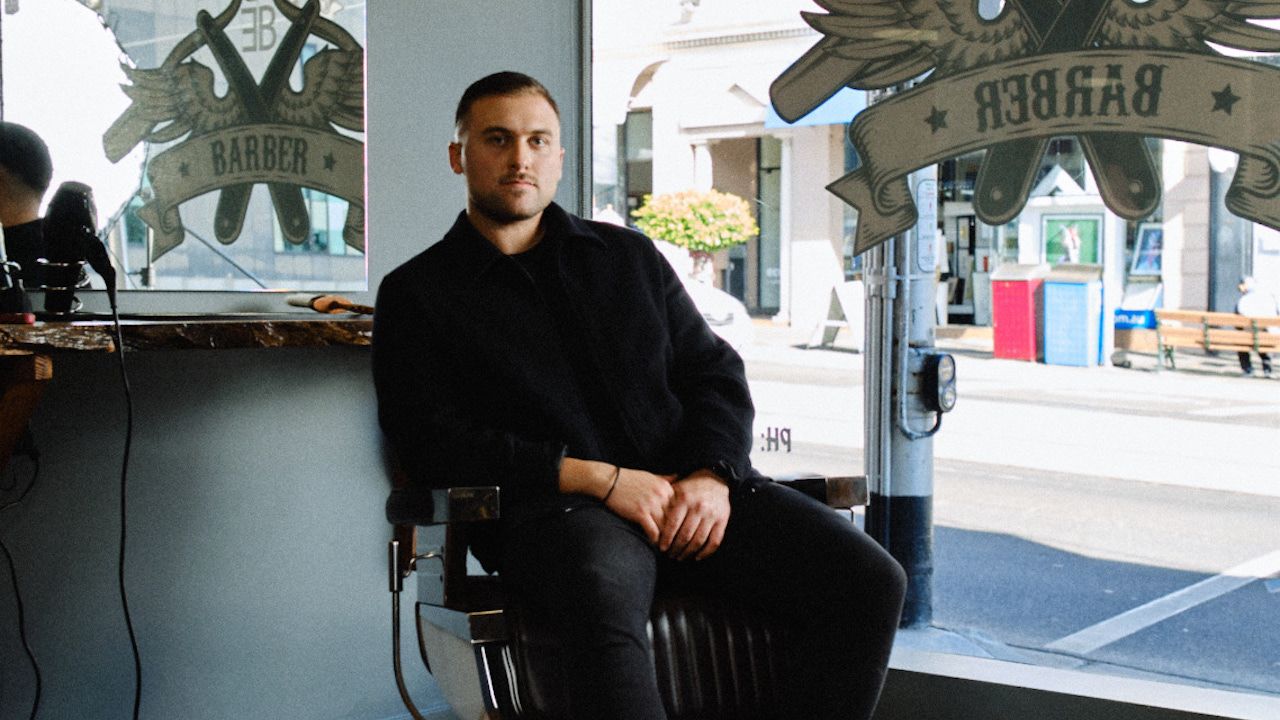

My testicular cancer diagnosis during a pandemic
One year ago Mo Bro Andreas was diagnosed with testicular cancer at age 24. He underwent chemotherapy treatment and then, with the support of the rugby community, he eventually returned to playing the sport he loved.
He joins us in the barber chair to share his journey – and why he’s on a mission to get young men to have important conversations about their health.
Focussing on the little wins
“I remember sitting there, and I just had my head over the toilet bowl thinking, this is the worst thing that can happen.” That’s how he describes his chemotherapy treatment last year, while living in a lockdown where he was unable to receive visitors.
“From a physical point of view, the chemotherapy was one of the toughest things I’ve had to put my body through. I’ve trained and played at a high level of rugby for all my life, which is notoriously tough, but chemo was extremely tough and incredibly mentally draining,” he says.
“I wasn’t going through a good time, but I just kept my mind strong by looking forward to the next step,” he says. “The little, small wins were big for me, and got me through chemotherapy.”
He adds that many people in his situation don’t have the same opportunity – and that his biggest motivator now is the prospect of sharing his story and helping others through their journey.
Getting involved with Movember
Andreas says that he’d supported Movember for several years, though that hadn’t extended much beyond growing a moustache. He explains that Movember’s work took on a new meaning for him after his diagnosis and treatment.
“Movember meant a lot more to me this year than it had previously,” he says. “It brings together teams, workplaces, friends, and the way it provides fun ways to talk about serious issues is really cool.”
He singles out Movember’s advocacy and educational work, particularly when it comes to talking to young men like himself about testicular cancer. “It’s educating and it’s creating awareness in a fun and engaging way,” he says.
Being in tune with your body
Andreas says that, if he hadn’t been in tune with his body, he would not have sought help when he noticed small changes in how he was feeling. “At first, I think I was doing the manly thing in terms of putting it off by saying it’s fine, it’s fine. It was just a niggle, a bit of discomfort, but it’ll be fine. But after two weeks, I realised something wasn’t right and thought that perhaps getting it checked out wouldn’t be a bad thing. I knew something was off, and it was starting to affect me mentally, even though it was a physical issue,” he says.
Essentially, Andreas didn’t know about the early signs of testicular cancer. However, he did know his body well enough to realise that the changes in his physical and mental health were a concern. He says that waking up and feeling drained and ‘off’ was enough for him to check in with his GP.
Support from the rugby community
Following his diagnosis, Andreas says his past and present rugby clubs played a big part in his journey and his return to sport. “My experiences over the past 12 months really put everything into perspective for me. They’ve helped me reset and focus on doing the things I truly enjoy, which is playing. It was nice to remember why I enjoyed playing in the first place.”
All told, Andreas’ rugby community rallied to support his fundraising efforts, ultimately helping raise $22,000 across the globe.
“It’s pretty special,” he says about the community’s collective effort. He also says he’s delighted with all the conversations he’s been part of after he shared his story. “I want to continue having the right conversations with people. There were guys, who after conversations with me, went and got checked. They’re conversations we wouldn’t have had if it wasn’t for my experience. Unfortunately, sometimes it takes a big shock, and often a hard time, for good things to come from that.”